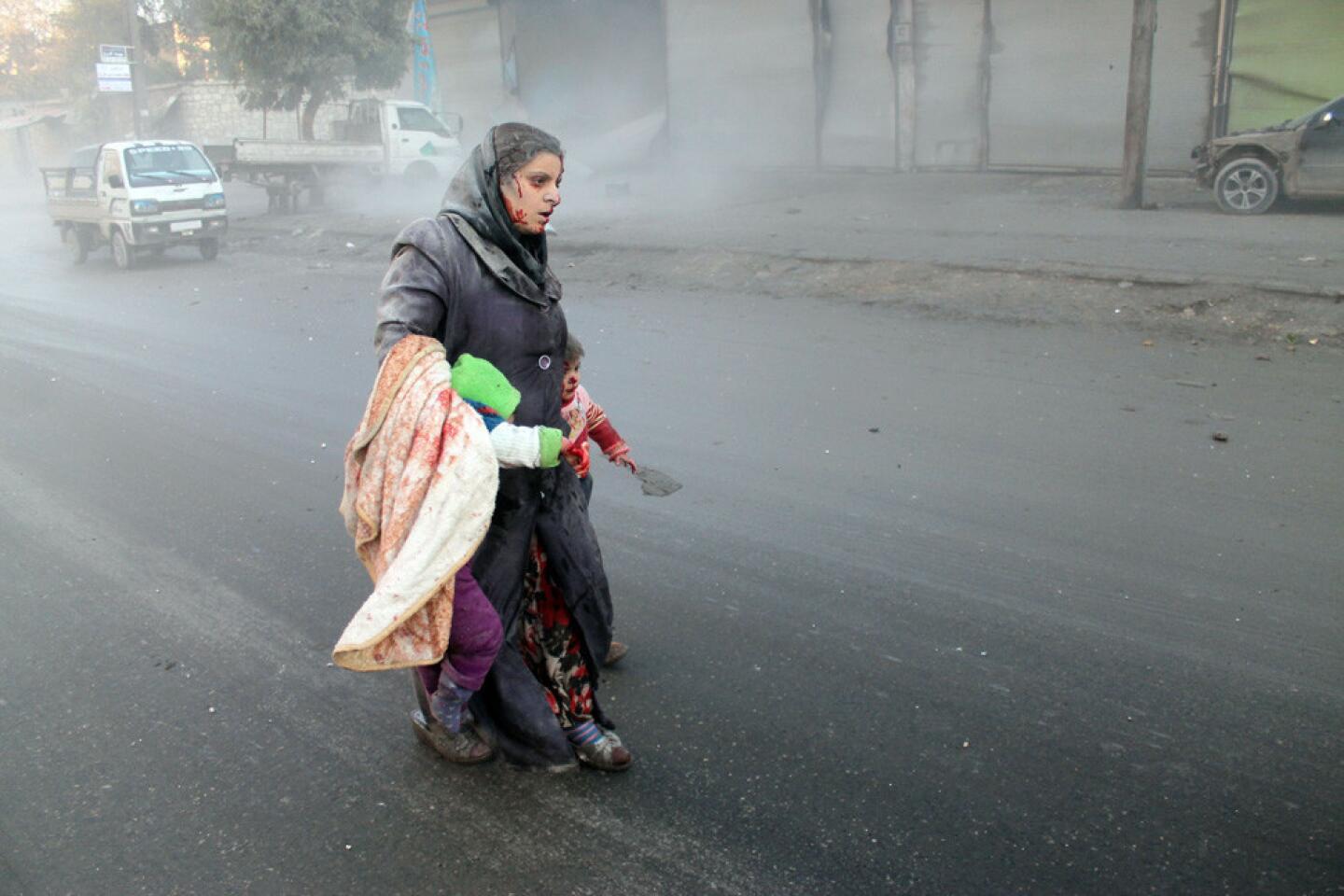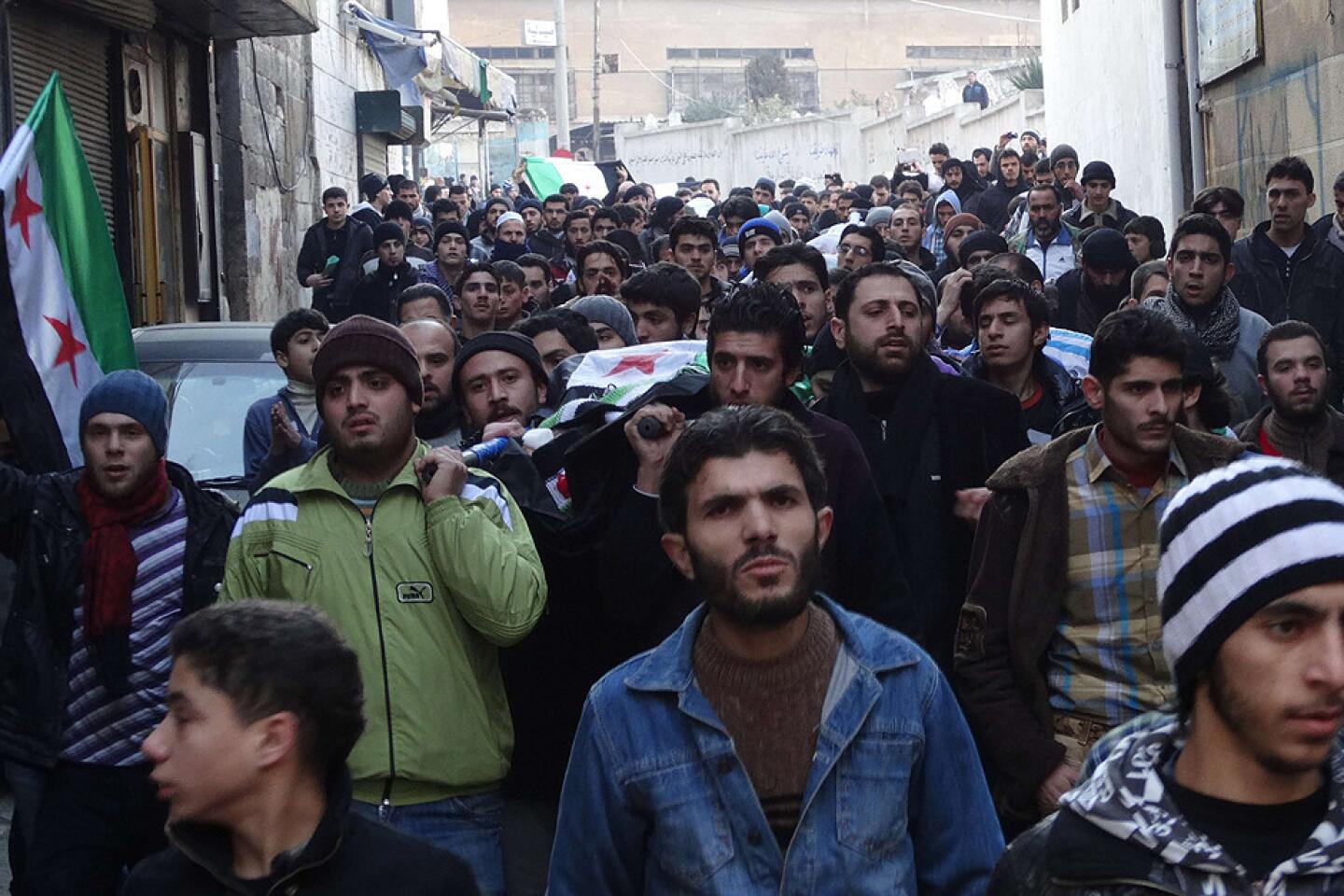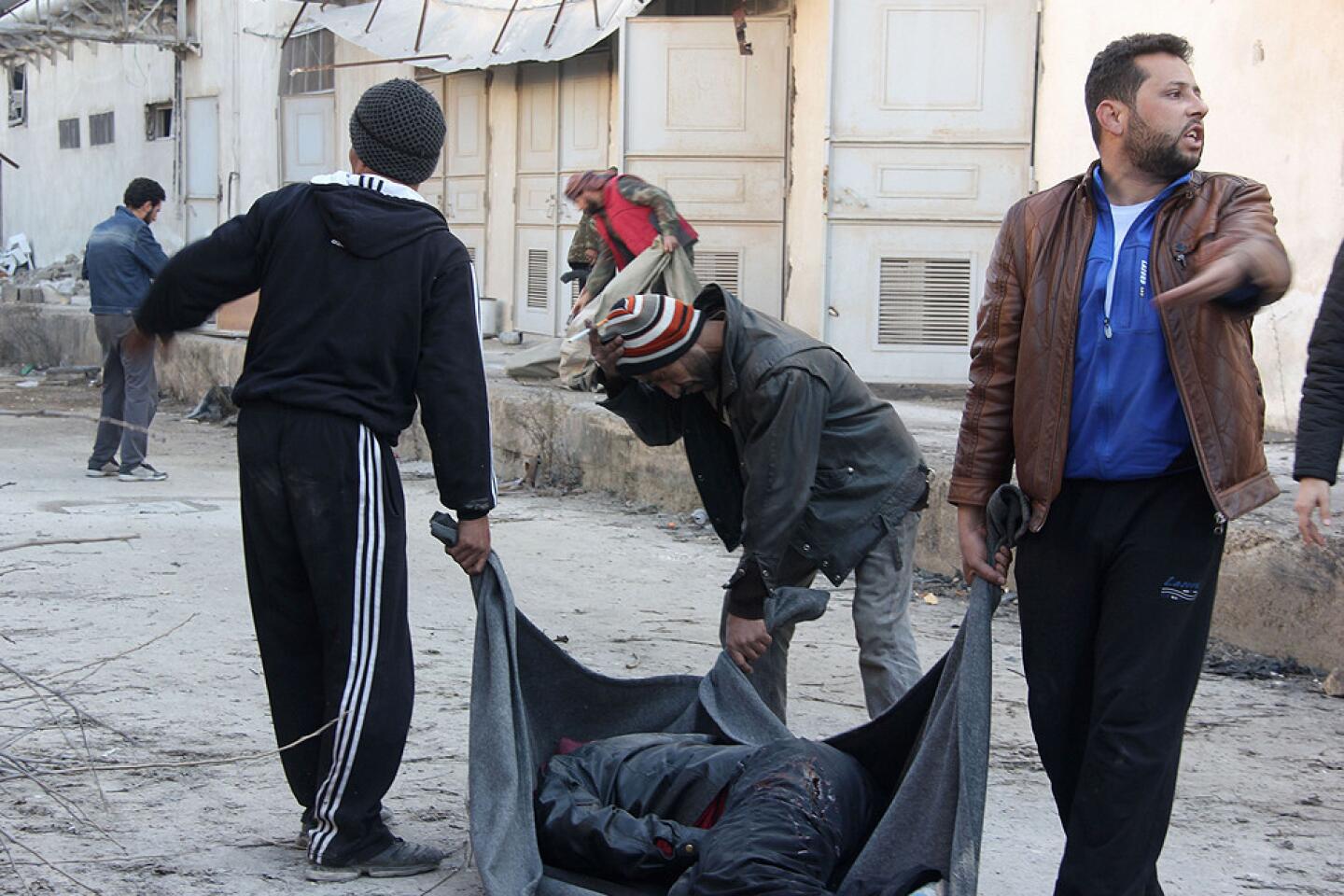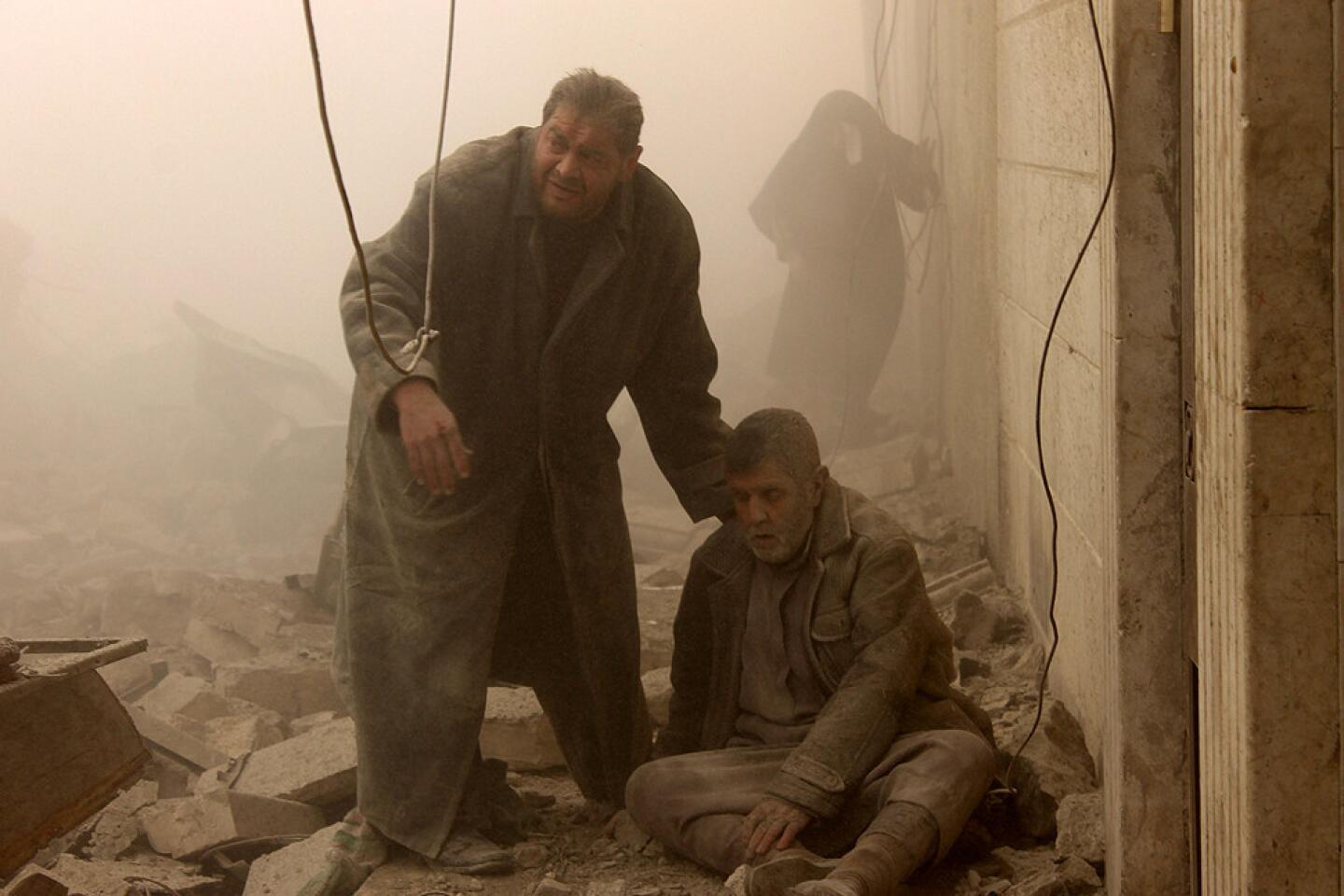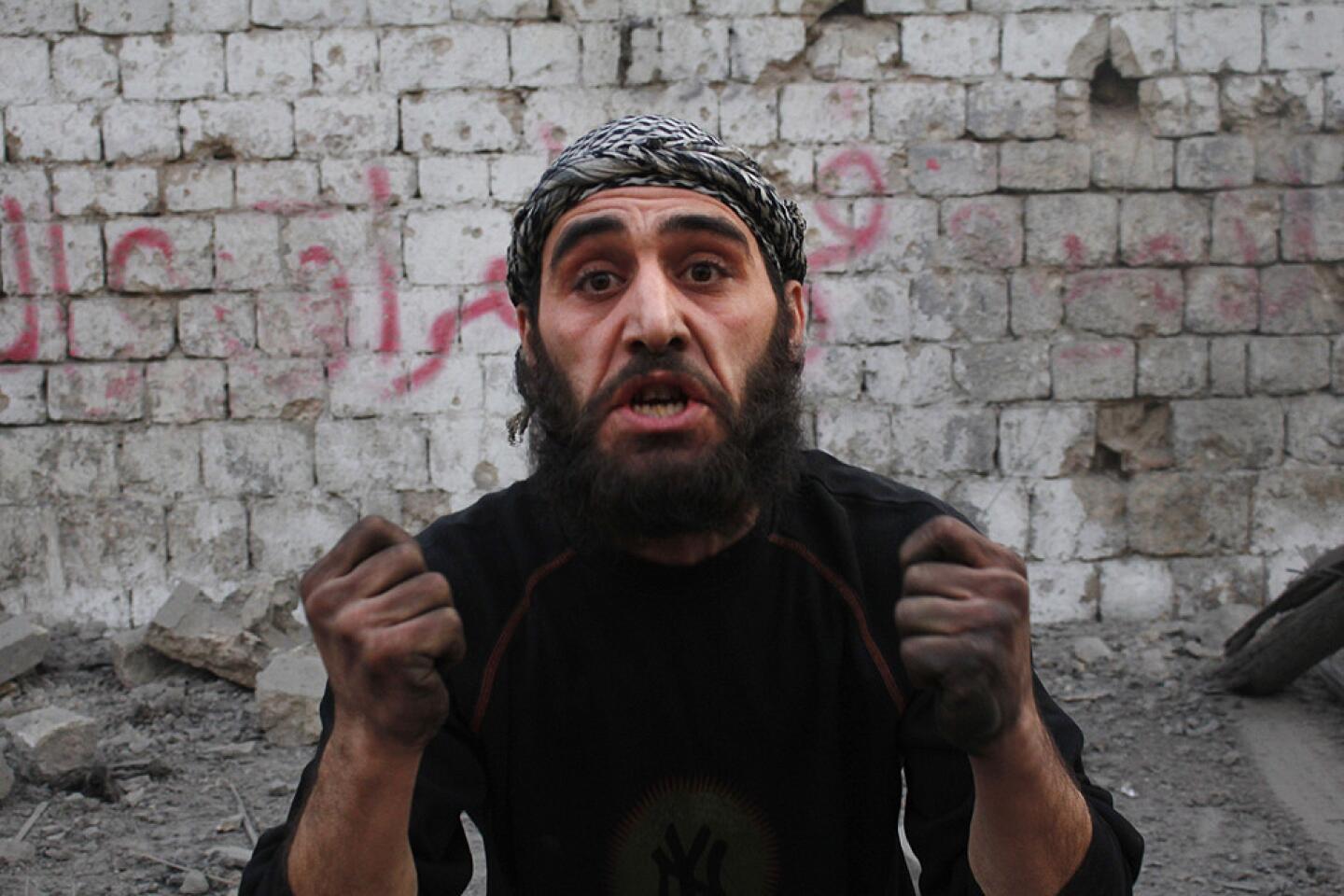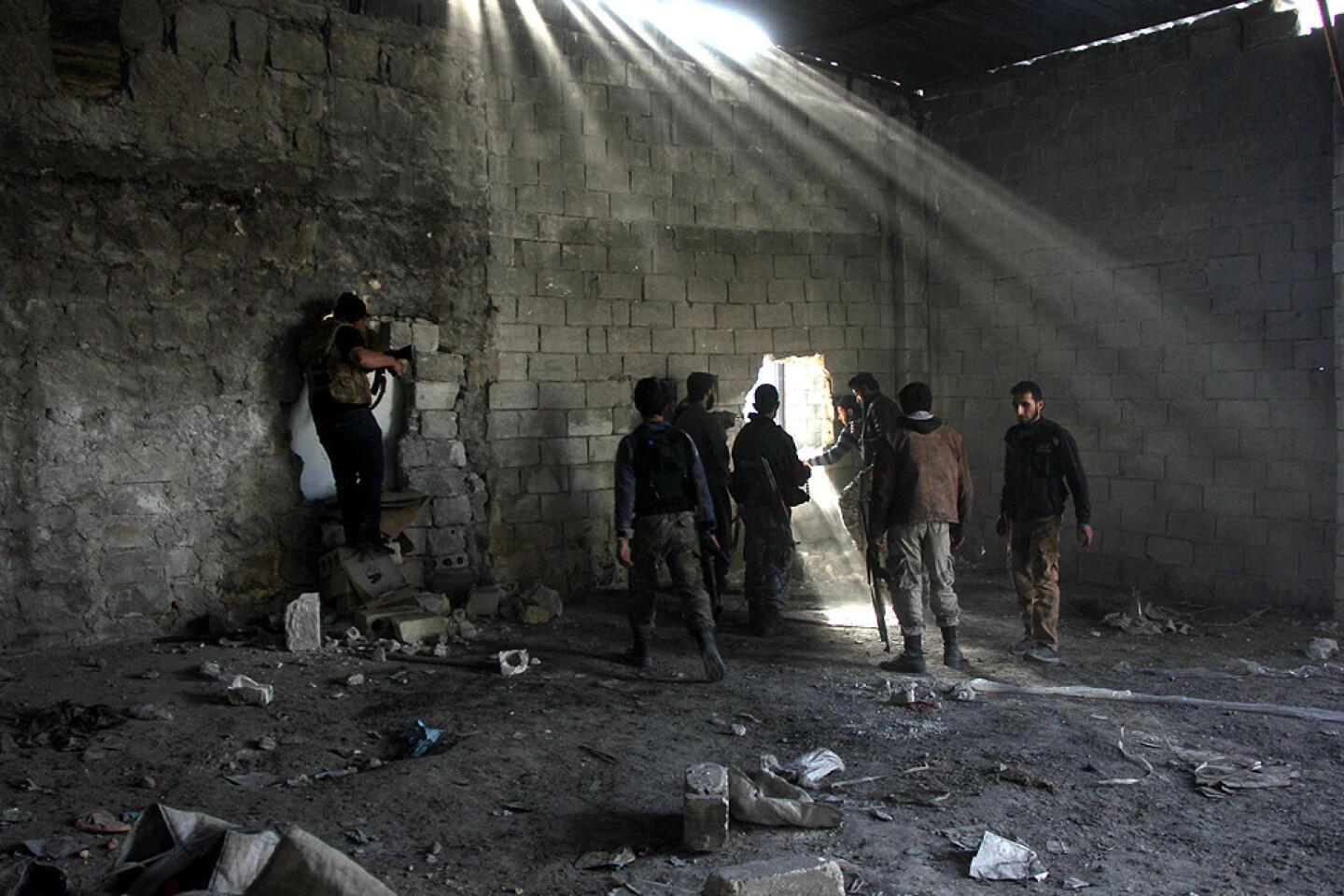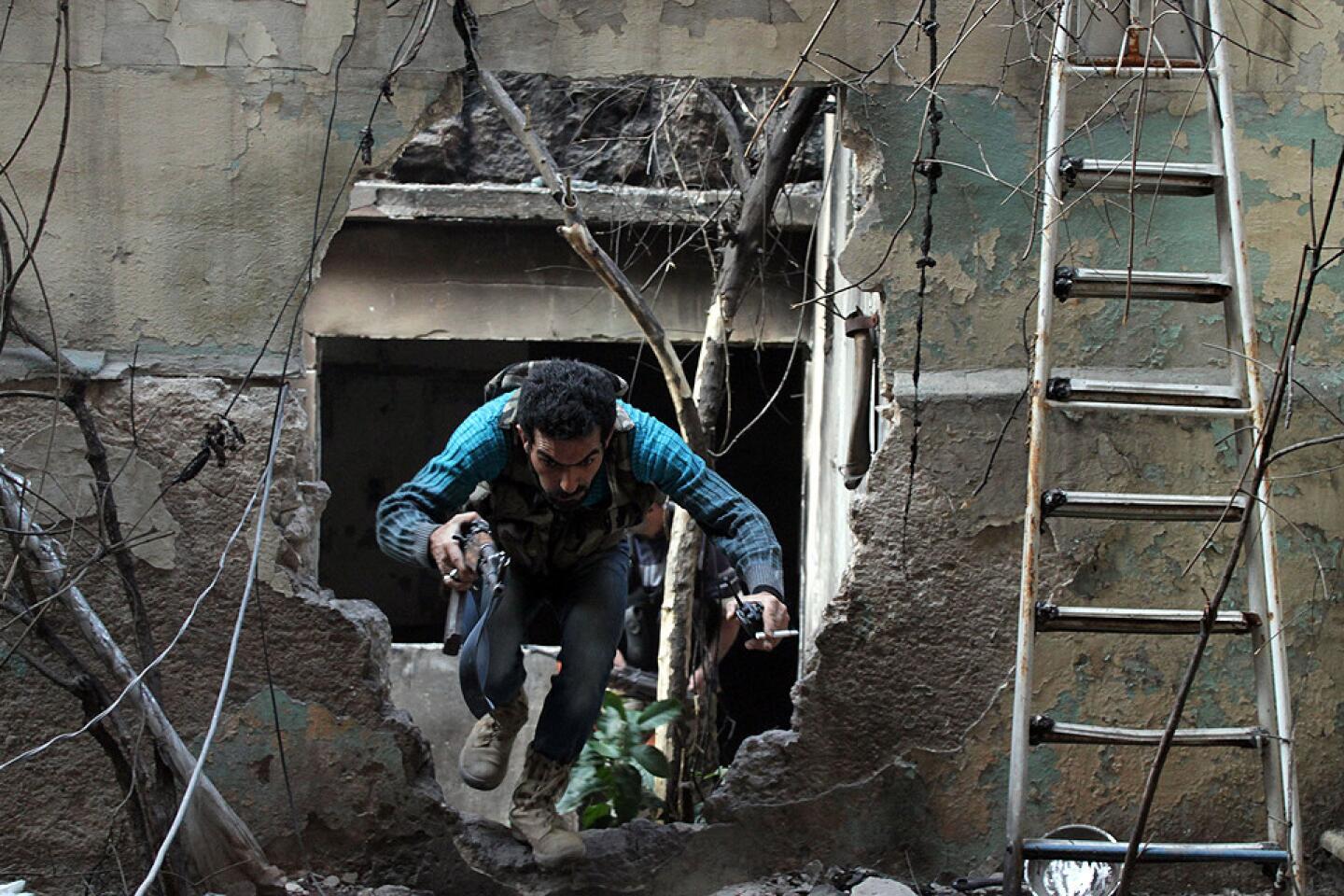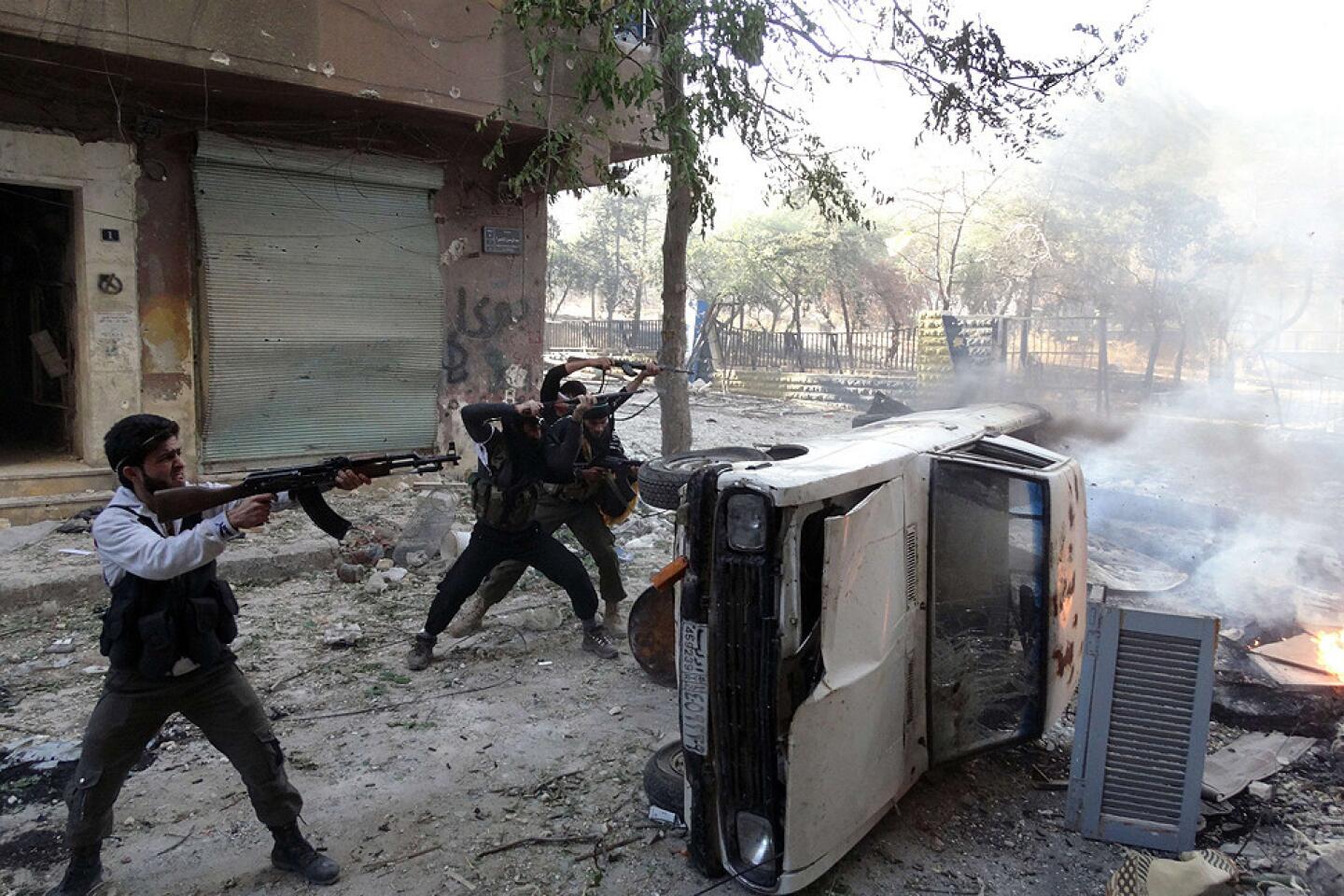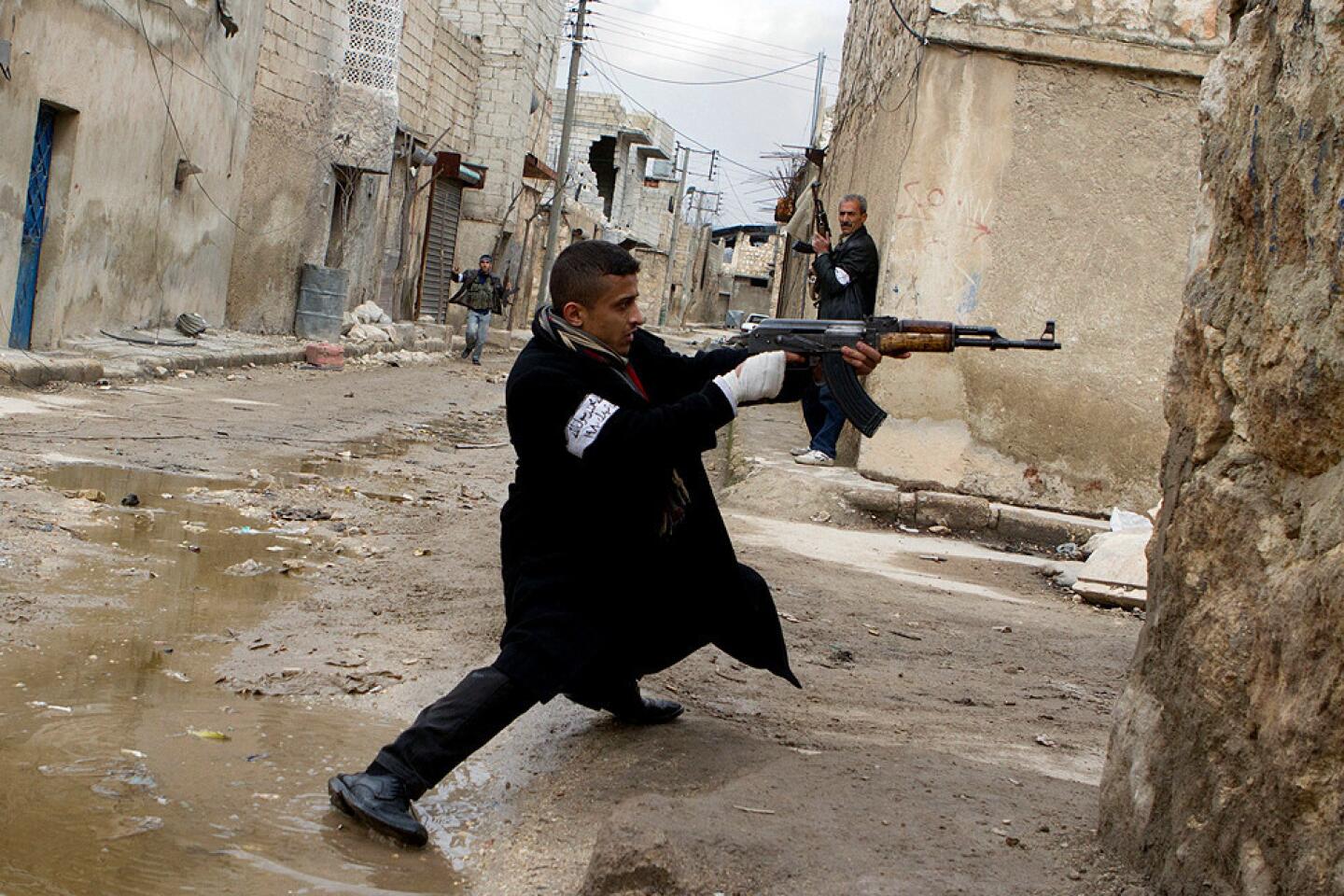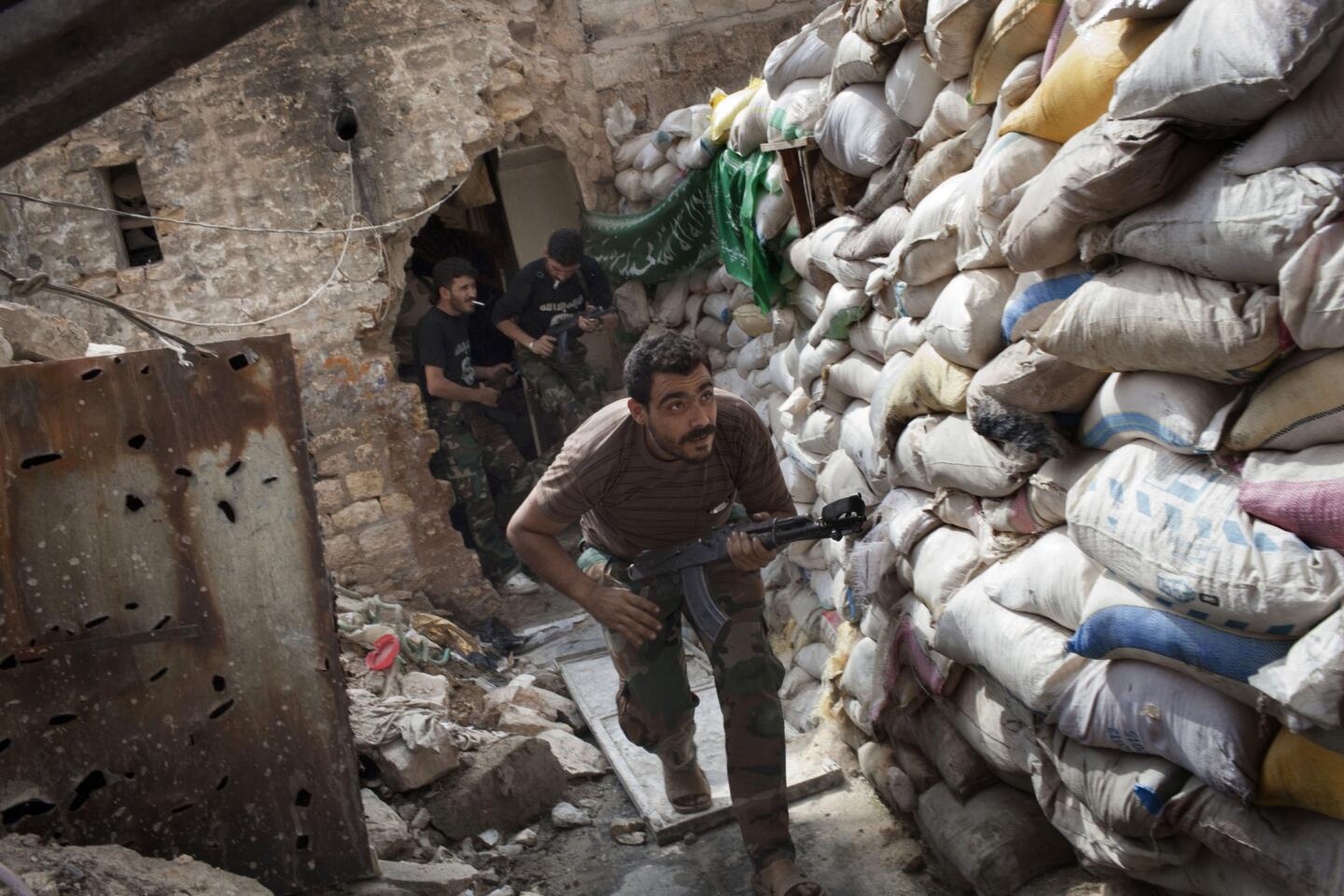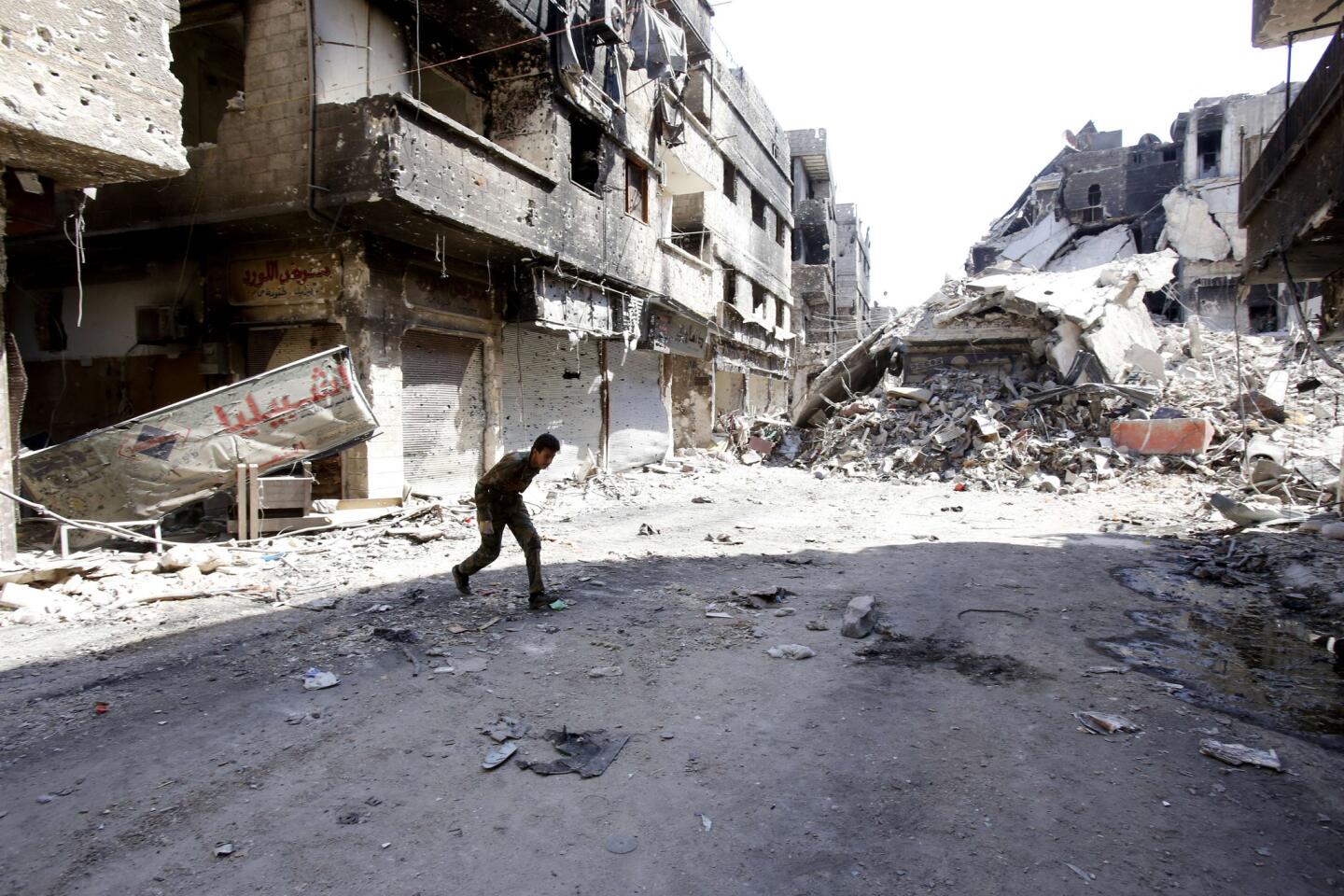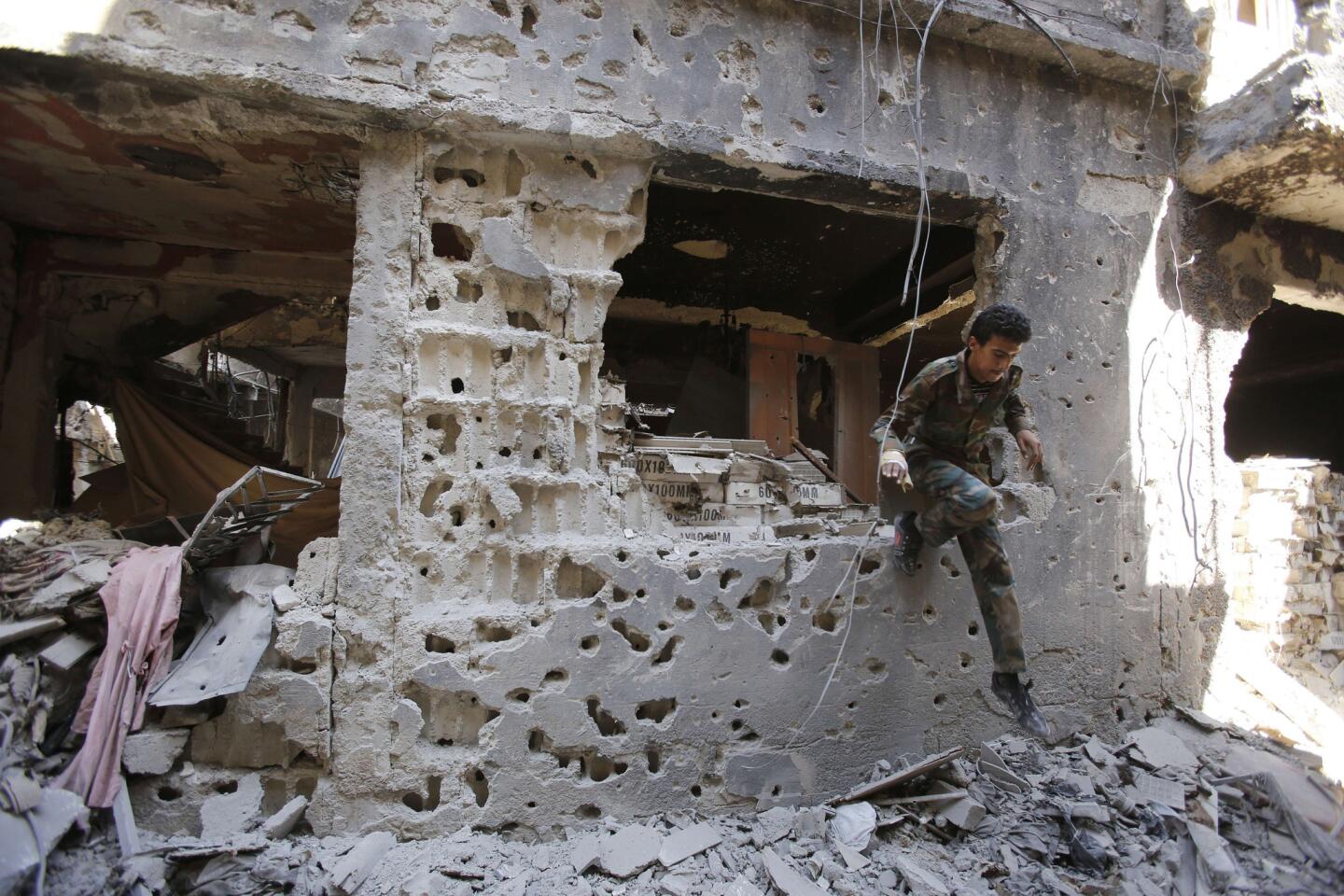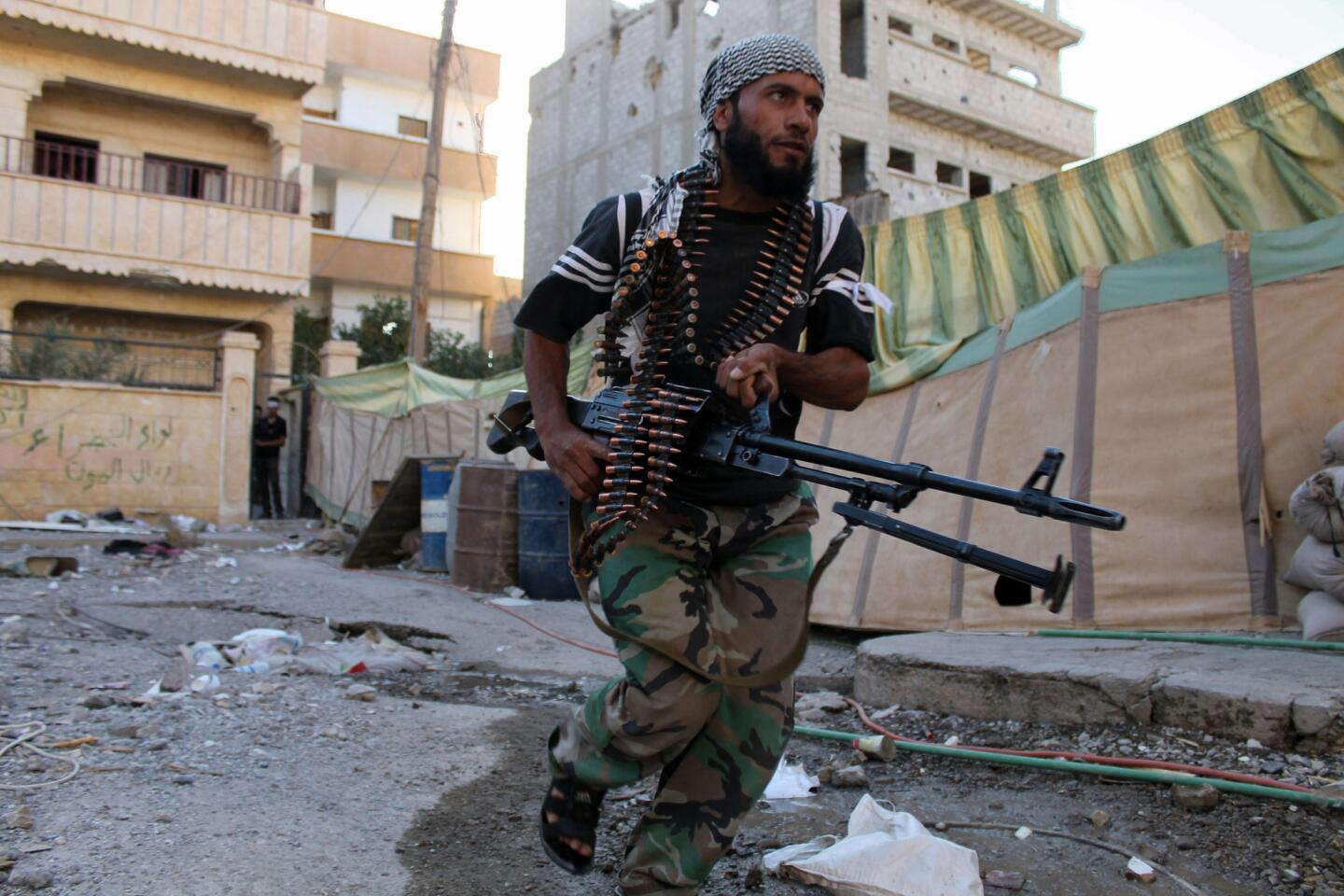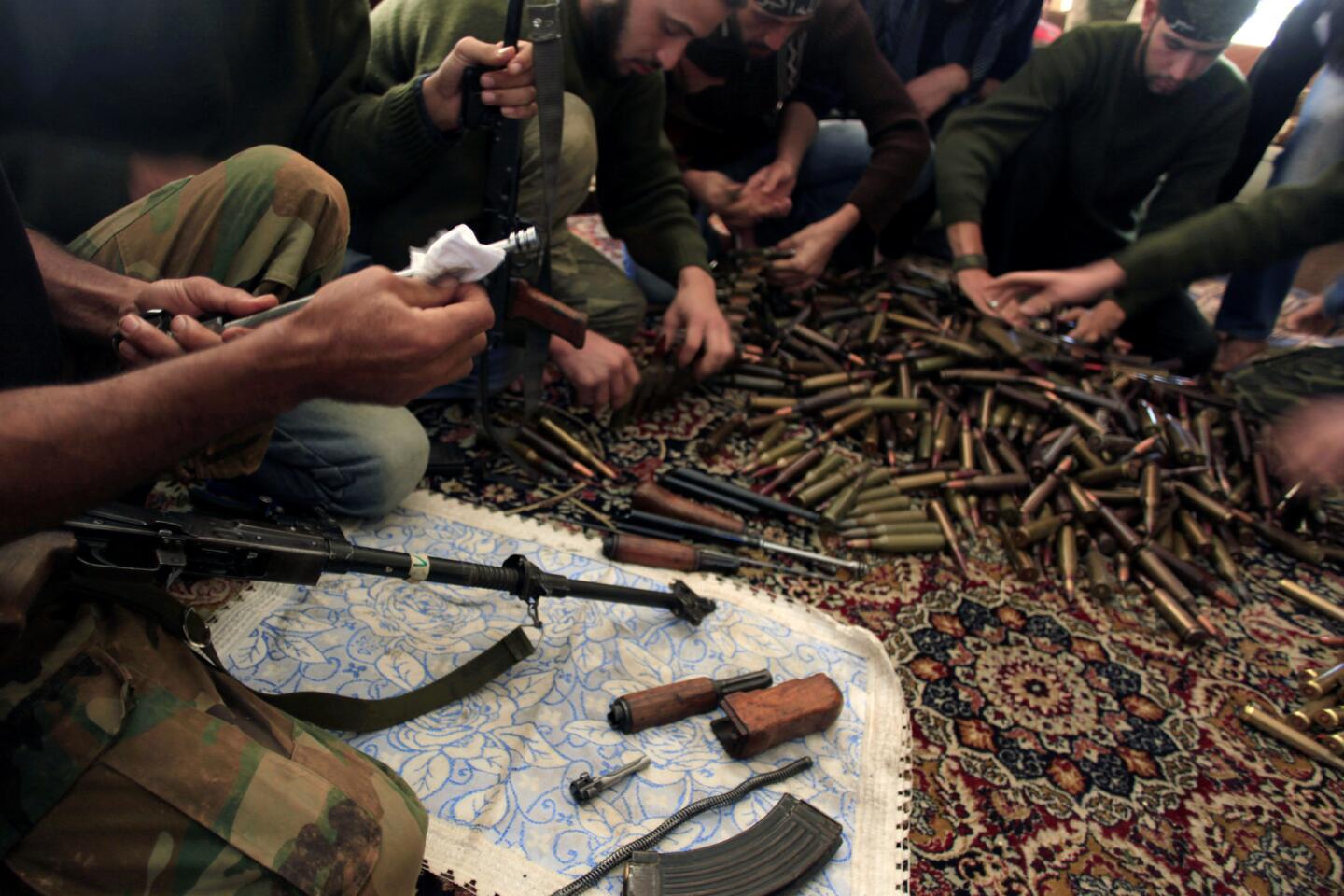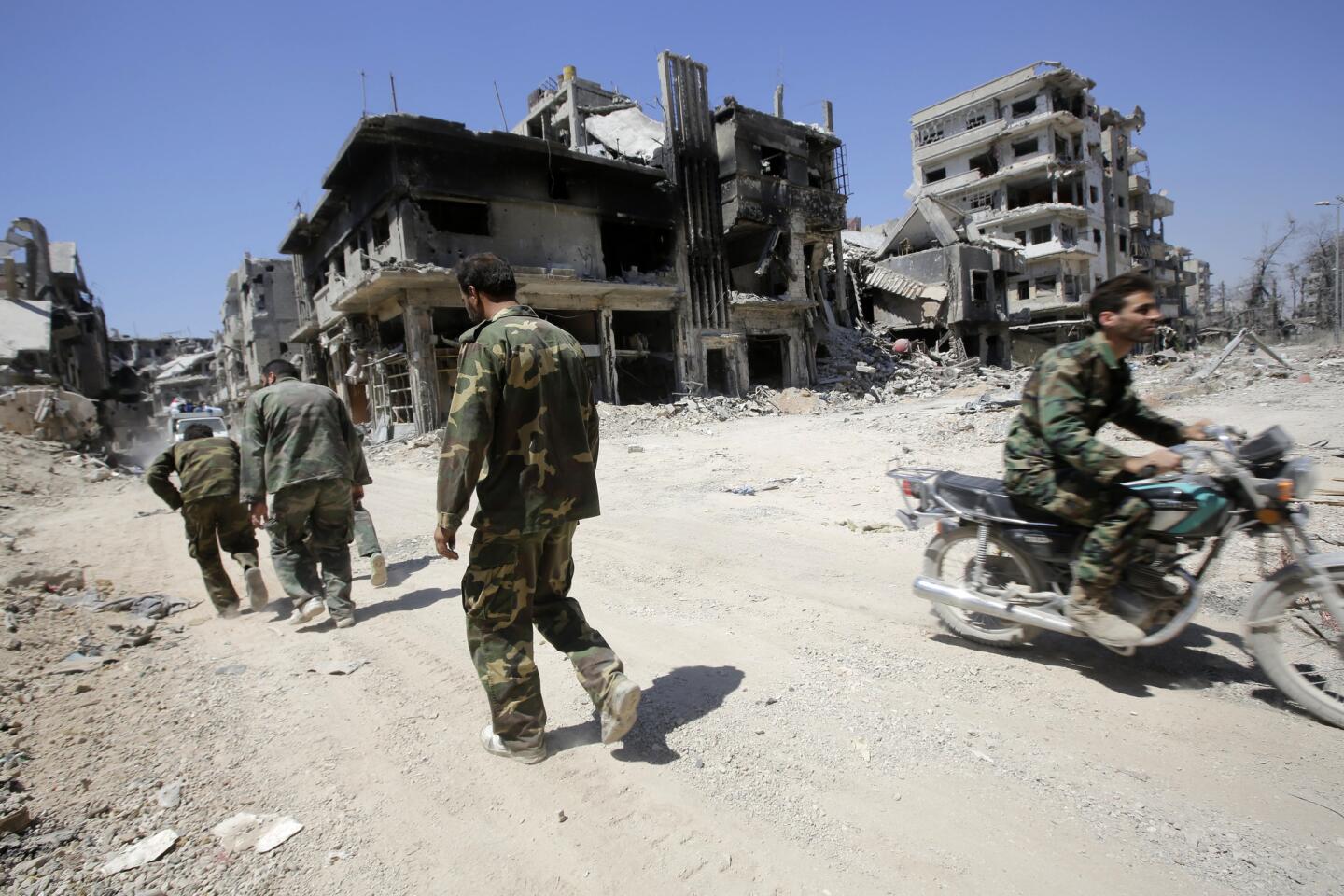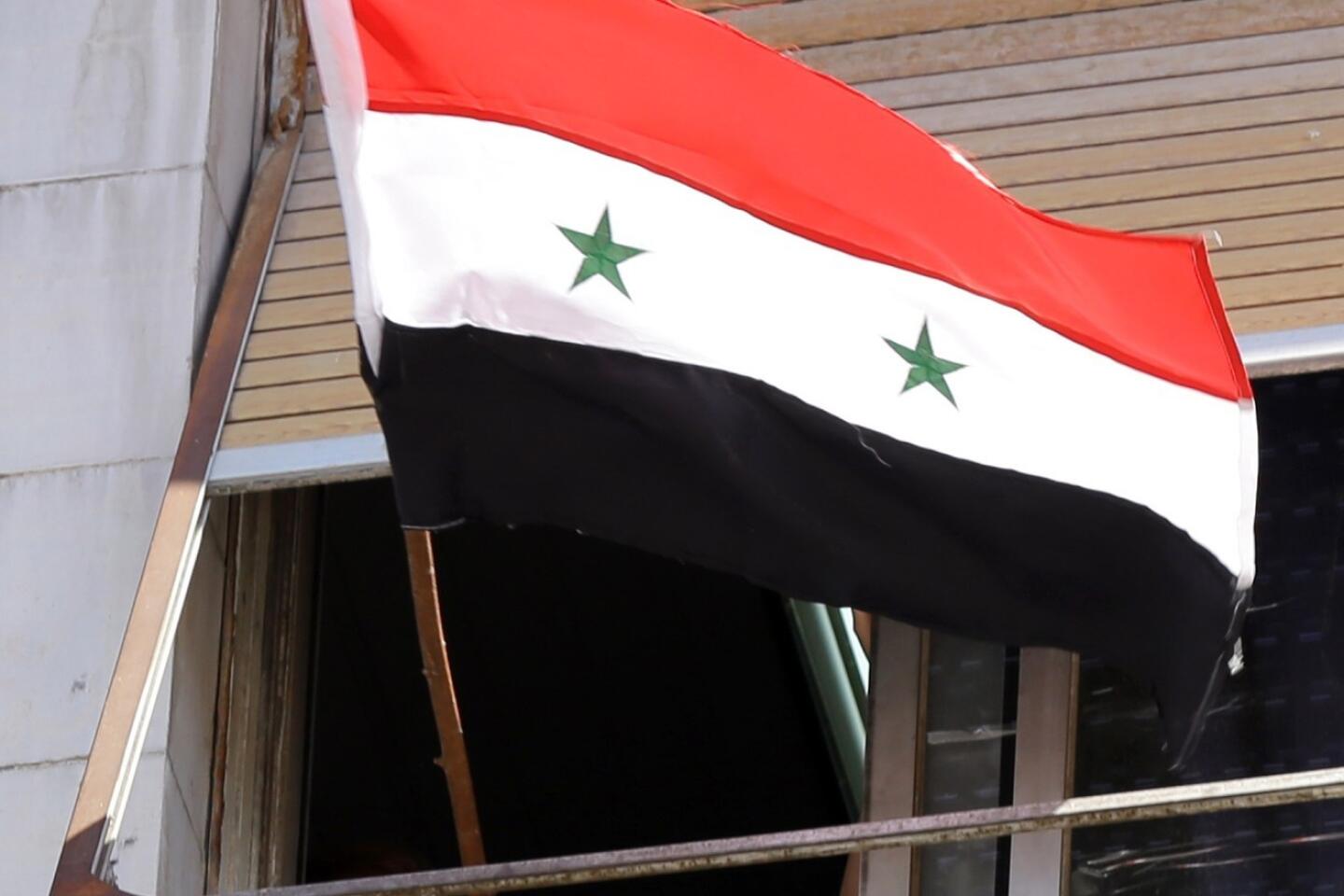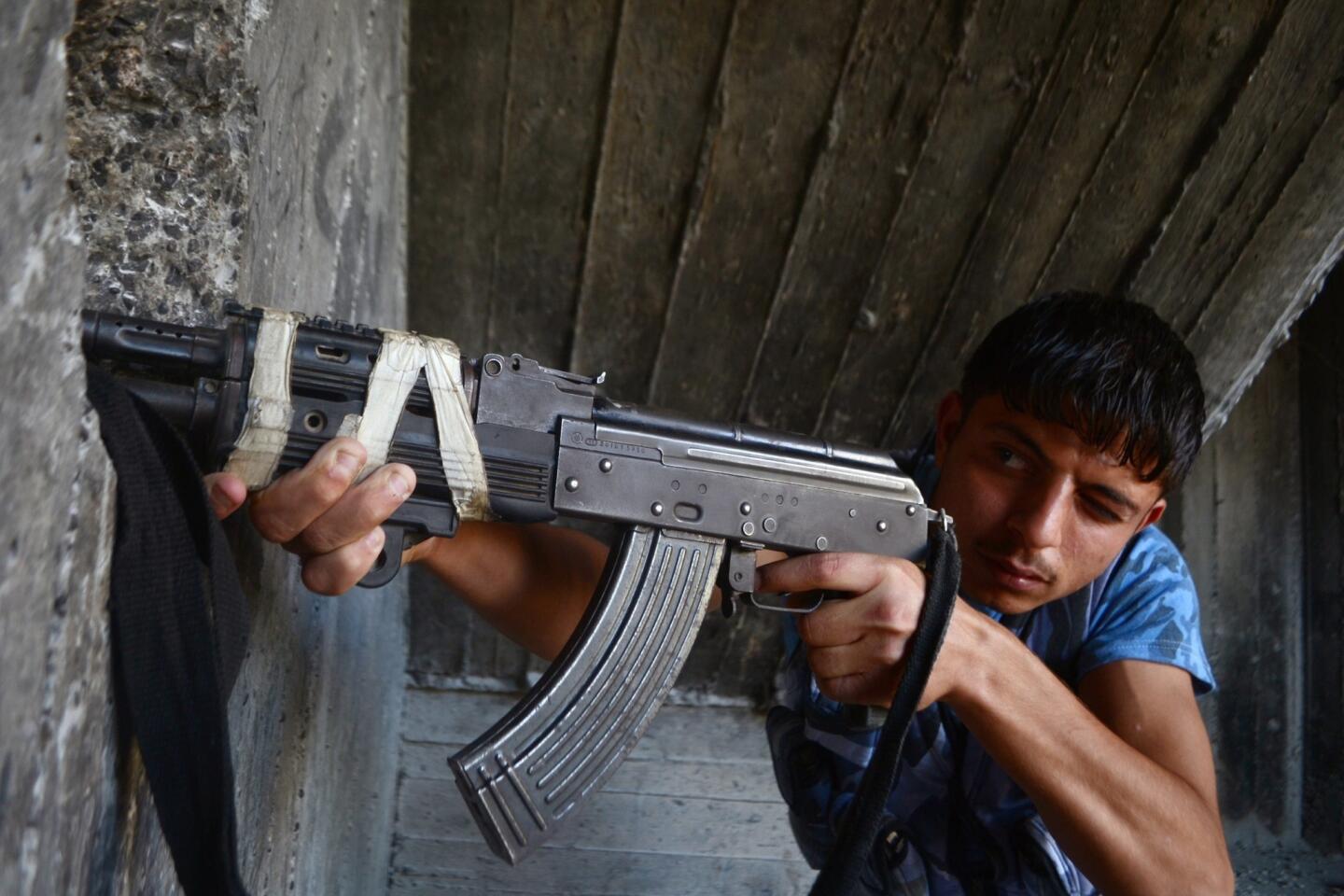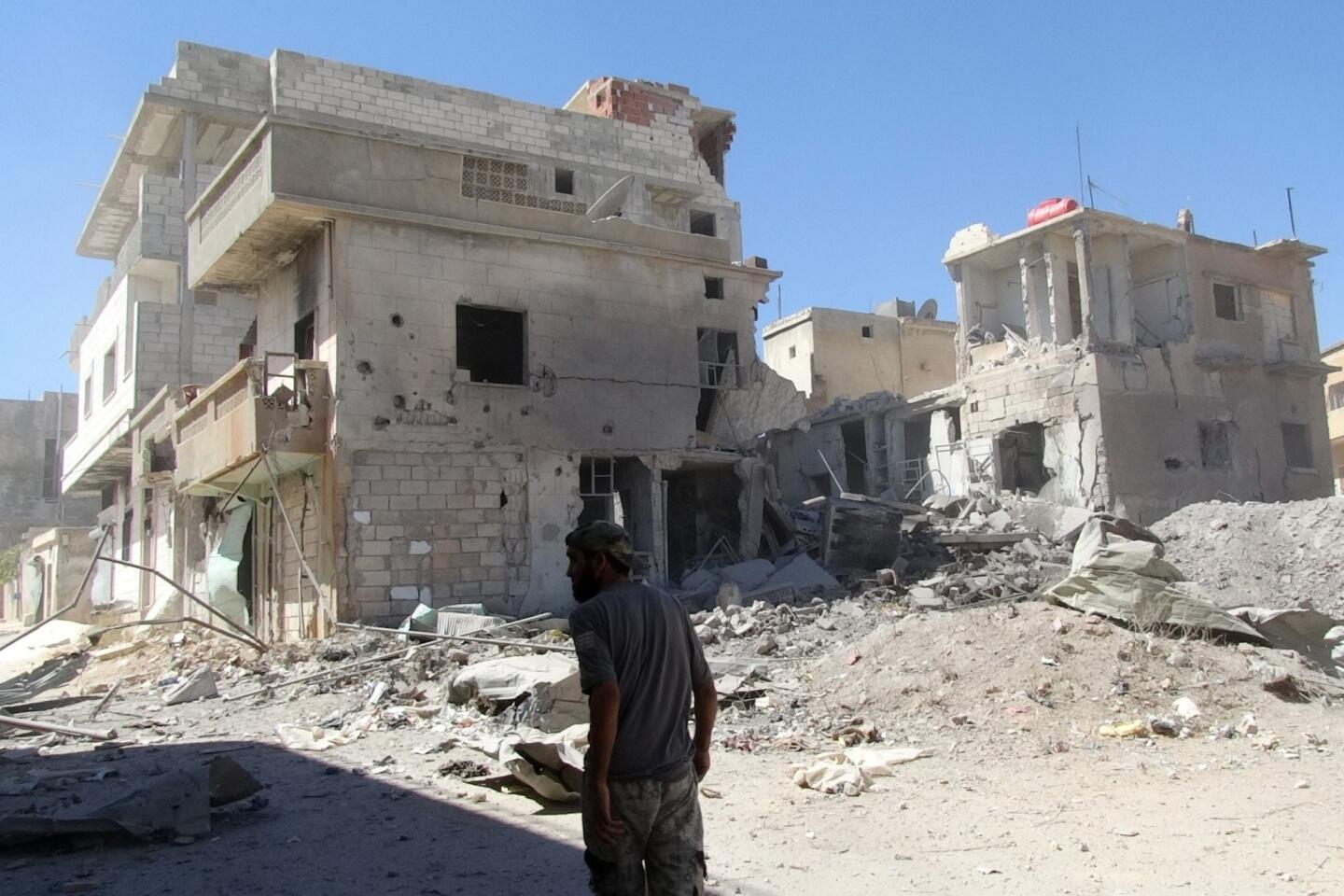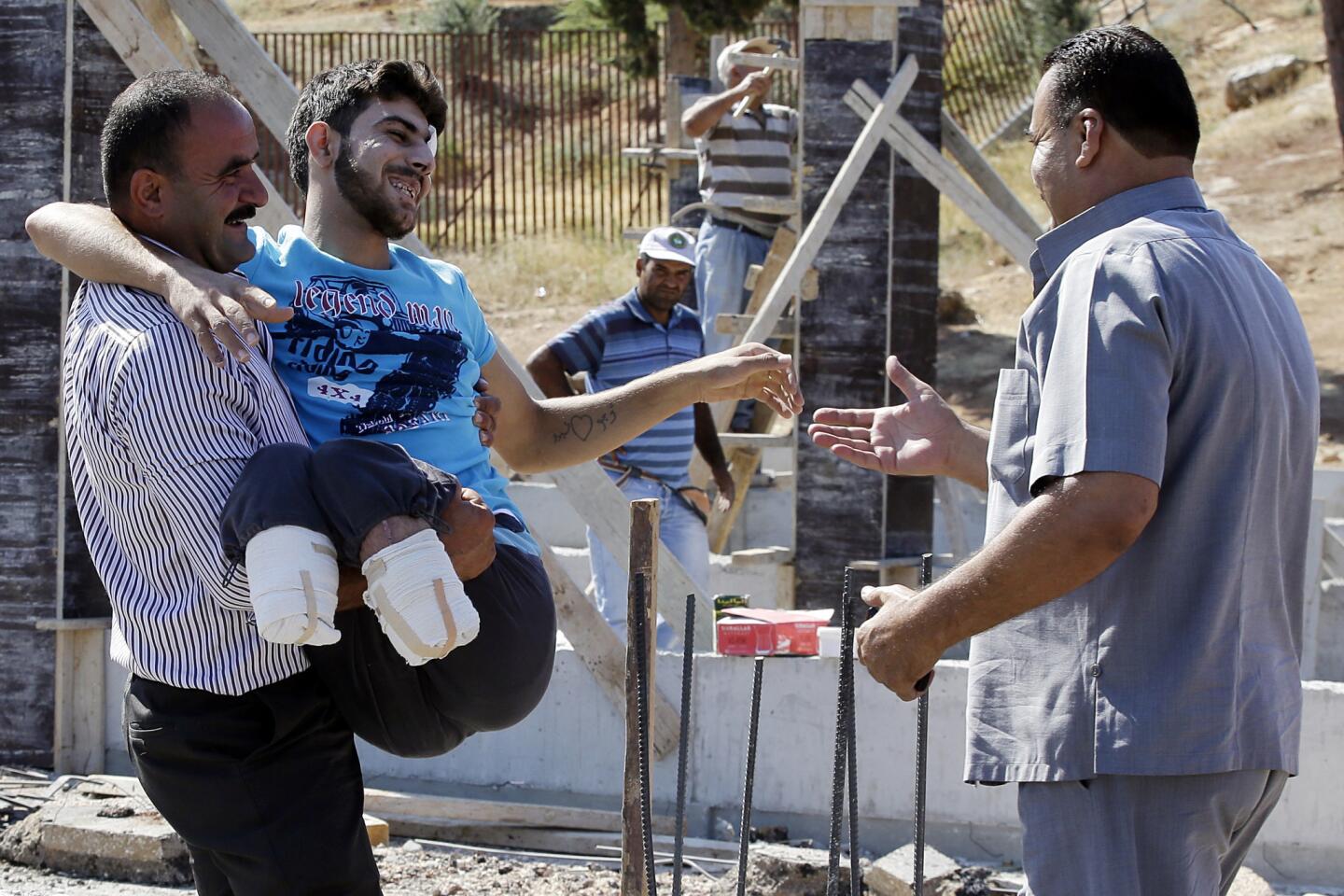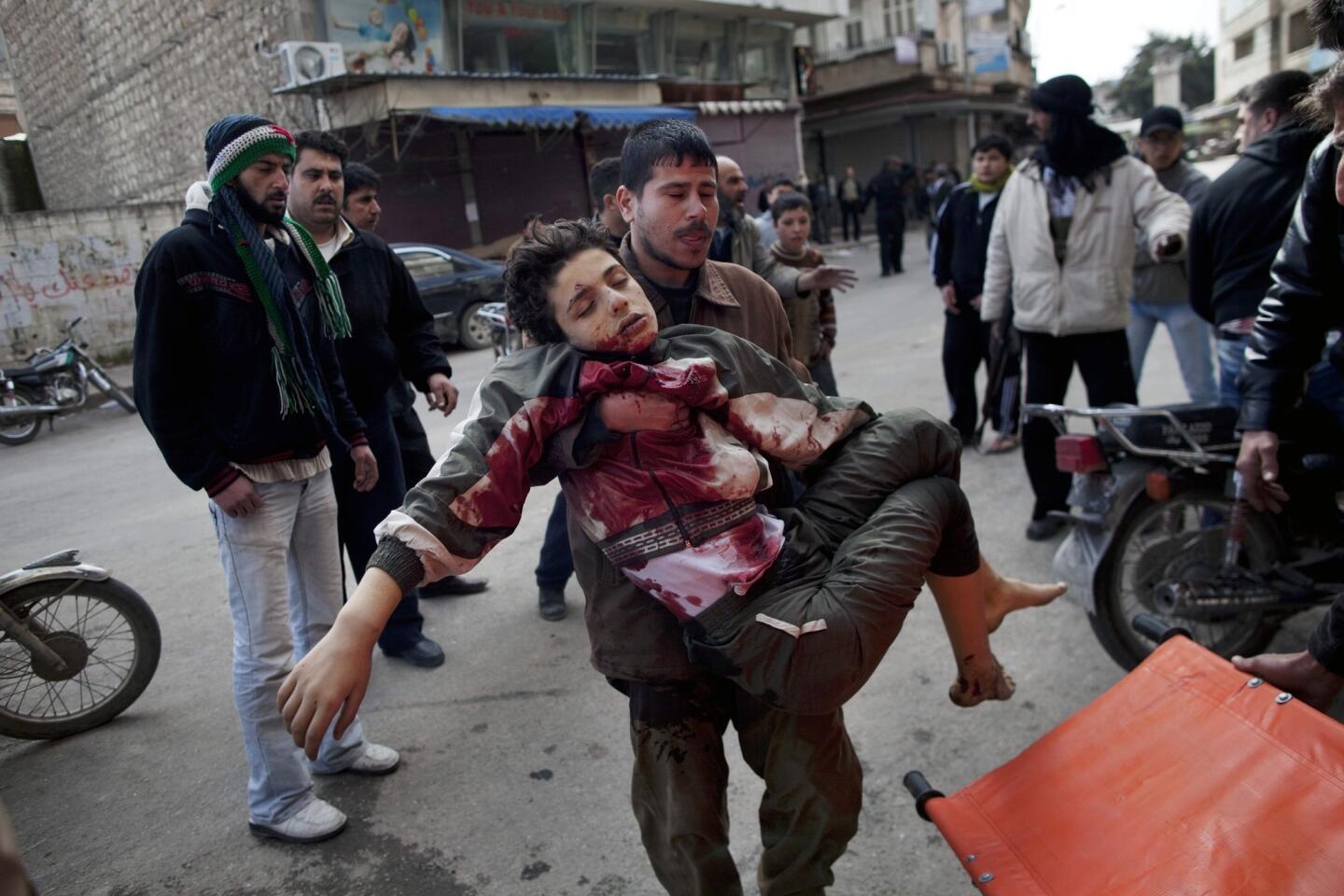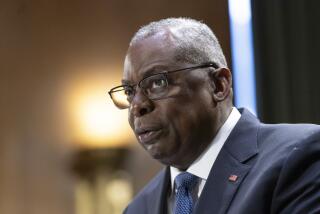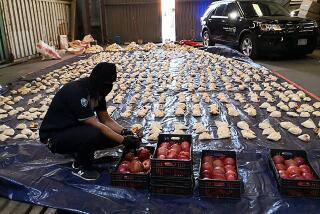Syrian leader discloses locations of dozens of chemical weapons sites
UNITED NATIONS — Signaling that he may be serious about giving up his chemical weapons, Syrian President Bashar Assad has disclosed the locations of dozens of poison gas production and storage sites to international inspectors, according to Western officials.
Officials familiar with Assad’s disclosure — the first step in complying with an ambitious U.S.-Russian plan to seize and remove or destroy his arsenal of chemical weapons by mid-2014 — described it Tuesday as “a serious document” that comprises scores of pages and is surprisingly thorough.
Information in the closely guarded document roughly tracks with U.S. intelligence estimates that Syria has about 45 sites used to produce or store illicit blister agents or neurotoxins. Nearly half those sites are believed to contain chemical agents that could be used in artillery rockets and other munitions.
Syria submitted the declaration over the weekend to the Organization for the Prohibition of Chemical Weapons, the implementation and compliance arm of the Chemical Weapons Convention. Until two weeks ago, Assad had refused to acknowledge that his military possessed chemical warfare agents.
U.S. officials have said Syria’s disclosure would be the first test of its willingness to comply with a Sept. 14 agreement in Geneva between the United States and Russia, Assad’s most powerful ally, that shelved the threat of U.S. airstrikes if he agreed to relinquish the toxic weapons program. Officials said that for now it appeared Assad had met the test.
“It’s not necessarily 100% accurate, and we aren’t naive — we don’t know what we don’t know,” said one Western official, who spoke on condition of anonymity because the document hasn’t been released publicly. “We are still looking at it, but it seems interesting.”
The disclosure may buy Assad some breathing room as the United States, Britain and France negotiate with Russia over a United Nations Security Council resolution to enforce the agreement. Russia has rebuffed U.S. efforts to invoke Chapter 7 of the U.N. Charter, which can be used to authorize military force in case of noncompliance.
Secretary of State John F. Kerry and Russian Foreign Minister Sergei Lavrov continued tough talks on the language of the resolution, haggling for 90 minutes Tuesday afternoon on the sidelines of the U.N. General Assembly meeting in New York. Although an agreement still appeared far off, a senior State Department official said afterward, “We made progress today.”
Earlier, in his address to the General Assembly, President Obama called Syria’s accounting of its chemical stockpiles “a first step.” But he pressed the diplomats and world leaders to hold Assad accountable for a poison gas attack in the Ghouta area of Damascus last month that Obama said had killed more than 1,000 people.
“There must be a strong Security Council resolution to verify that the Assad regime is keeping its commitments, and there must be consequences if they fail to do so,” Obama said. “If we cannot agree even on this, then it will show that the U.N. is incapable of enforcing the most basic of international laws.”
Assad’s government says the attack on the pro-rebel Ghouta area was a “provocation” by opposition forces to persuade the international community to intervene in a civil war that has raged since early 2011.
U.N. inspectors who visited three Ghouta neighborhoods concluded that chemical weapons were used against civilians, including children, on a large scale on Aug. 21. They said environmental, chemical and medical samples provided “clear and convincing evidence” that surface-to-surface missiles containing the lethal nerve agent sarin were fired into Muadhamiya in West Ghouta and Ein Tarma and Zamalka in East Ghouta.
After Obama threatened to launch missile strikes against Syrian government targets in retaliation for the chemical attacks, Assad agreed on Sept. 14 to sign the Chemical Weapons Convention — the international treaty that bans the production, storage and use of chemical weapons — and to declare all his toxic agents, production and storage sites and related facilities within a week. U.S. officials believe he possesses about 1,100 tons of mustard, sarin and VX gases, as well as other chemicals.
In his U.N. speech, Obama praised the inspectors who braved sniper fire as they drove through Damascus to investigate the Aug. 21 attack. “They uncovered the truth, and they have the thanks of the world,” Obama said during a luncheon hosted by U.N. Secretary-General Ban Ki-moon.
Obama called the disarmament plan a starting point for “a larger diplomatic effort to reach a political settlement” to end Syria’s civil war.
“A leader who slaughtered his citizens and gassed children to death cannot regain the legitimacy to lead a badly fractured country,” Obama said. “The notion that Syria can return to a prewar status quo is a fantasy.”
International inspectors are due to return to Syria on Wednesday to investigate allegations that chemical weapons also were used March 19 on the village of Khan Assal, outside Aleppo.
Obama also announced an additional $339 million in U.S. humanitarian aid for Syrians displaced by the war, bringing total U.S. assistance in the crisis to nearly $1.4 billion.
State Department officials have declined to discuss details of Syria’s disclosure, saying they would wait until the Organization for the Prohibition of Chemical Weapons distributes it to member states, probably this week.
In an interview with Chinese state television on Monday, Assad said his accounting was “credible” and pledged to comply with international inspectors. “We will honor everything that we have agreed to do,” he said.
The agreement calls for international inspectors to arrive in Syria by November under a vastly accelerated timetable to begin verifying and impounding, then ultimately removing or destroying, Assad’s stockpiles.
The chemical weapons organization’s 41-member executive council is meeting in The Hague to draft a plan for inspections but has repeatedly postponed a meeting at which the plan is to be approved.
More to Read
Sign up for Essential California
The most important California stories and recommendations in your inbox every morning.
You may occasionally receive promotional content from the Los Angeles Times.
